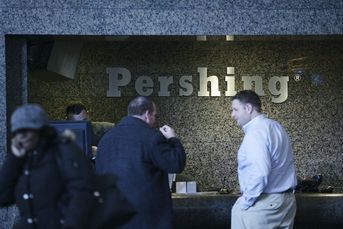Advisers, take charge of your tech – or hire someone who will

Having an IT expert on staff to handle software and get employees up to speed can make all the difference.
Gone are the days when advisers questioned the need for sophisticated information technology to run their business effectively — now the question is, who at the firm is going to take charge and actually run the technology?
Registered investment advisory firm executives should consider appointing a “technology ambassador,” Victor Fetter, chief information officer at LPL, suggested.
Having someone within the firm who understands the practice’s software inside and out is key to ensure that business operations run as smoothly as possible. With so many functions and capabilities in the various software systems and IT offerings available to advisers, having every adviser master it all can be near impossible.
Technology manager Rick Field is a technology ambassador for his firm, RetirementGeeks, in Raleigh, N.C., which uses LPL and its technology platform. He said part of the job is educating both coworkers and clients.
That keeps both sides working together efficiently.
“It frees up the adviser to focus on what its important for client,” Mr. Field said. “That frees them up from having to think of tech issues.”
.@vpfetter Appoint a Tech Ambassador and join monthly Tech Ambassador calls @LPL #LPLFocus pic.twitter.com/nmrz8bt8Mb
— Mimi Bock (@Mimi_Bock) July 28, 2015
Having a point person, or point people, for employees to turn to helps boost tech adoption, put out fires and increase advisers’ efficiency.
Greg Friedman, president of Private Ocean Wealth Management, said it’s about instilling ownership in an individual who is eager to master technology or a group of tech-savvy personnel.
“All the major systems that we use, each one of those systems needs an owner, someone who lives it and nurtures it and wants people to use it — someone who knows it best,” Mr. Friedman said.
Mr. Friedman, who is also chief executive of the client relationship management system provider Junxure, said that advisers need to work with their vendors to make that happen. Each firm’s tech ambassador should learn about updates to the system, figure out how to navigate parts of an IT platform that may be underutilized and get well-versed in all the firm’s software programs.
An adviser needs to make sure he or she picks the right employees for the role, or if no one currently working at the firm is appropriate, to hire someone with plenty of tech experience who is a good fit.
“A big challenge is if you have nobody who is interested,” Mr. Friedman said. “That’s a staffing issue.”
It doesn’t have to be one person. In fact, Mr. Friedman and Sheryl Rowling, an adviser with Rowling and Associates, agree that it should be more than one — in some cases, many more.
For example, someone who knows all of the technology but none of the background to make that technology run will not benefit the business.
“It doesn’t make sense to go to someone who just knows how to change settings,” Ms. Rowling said. “You need to go to someone who understands the ramifications.
“The integration of subject matter expertise is really critical,” she added.
This gets significantly harder when the adviser is a sole practitioner. But no matter the size of the firm, mastering information technology continues to grow in importance.
“It’s one reason why an adviser should eventually grow beyond themselves,” said Mike Byrnes, president of Byrnes Consulting. “There are certain advisers that are just spread too thin and their time isn’t very productive.
“The more successful advisers focus on client interactions and bringing in new business,” he added. “To get stuck in the weeds of technological changes can really bring them down.”
His advice is to hire younger advisers and support staff to help manage the technology and get the firm’s advisers up to speed in the hopes of boosting adoption of the software that the firm has paid for — and potentially explore options for additional software purchases that could help advisers to thrive.
Regardless, getting firm-wide buy-in is an integral step.
“The reality is sometimes you can’t teach an old dog new tricks,” Mr. Byrnes said. “If an adviser is slowing the progress of the organization [by refusing to adopt the latest technology], then they are only shooting themselves in the foot.”
Learn more about reprints and licensing for this article.







